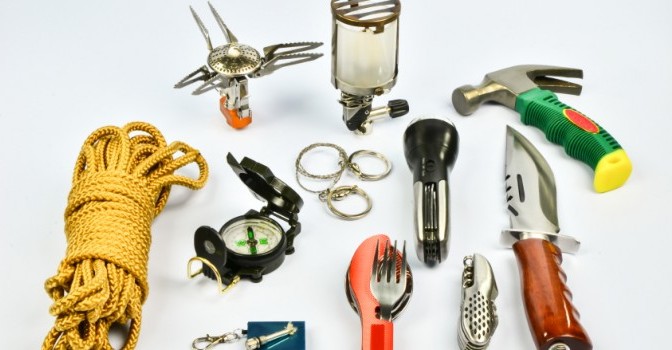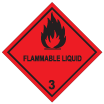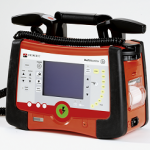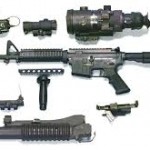If you read what’s on some websites today, it seems like everyone is suggesting bugging out at the first sign of any problem. There’s a lot of talk about underground bunkers, wilderness survival techniques and bug out bags. While all of that is good, bugging out, just because the situation is bad, may not always be the best possible solution.
We all have to realize that people who write for these websites all have their own ideas of the best way to survive, myself included. While there are lots of survival strategies and skills that are held in common, there are also many different ways to approach any given survival situation. The only way we can know which are the best is to survive through it.
The survival shelter in the woods is a common dream of many preppers. It resonates with that more basic and primitive part of us that wants to throw off all the trappings of modern society and return to a simpler life, more in touch with nature. Even so, having that desire doesn’t mean that we can do it.
Where are You Going to Bug Out To?
 If you’re one of those who actually has a cabin in the woods, then bugging out at the first sign of trouble makes a lot of sense. Anyone with such a location would be safer there, away from people and in a location that they had prepared and stocked for survival. If things worked out that the crisis passed quickly, the trip would always be chalked up to a practice run.
If you’re one of those who actually has a cabin in the woods, then bugging out at the first sign of trouble makes a lot of sense. Anyone with such a location would be safer there, away from people and in a location that they had prepared and stocked for survival. If things worked out that the crisis passed quickly, the trip would always be chalked up to a practice run.
But, that doesn’t apply to most of us. Since most of us don’t have that cabin in the woods, bugging out means going to live in the wild. That’s a lot harder than it seems. While it would be possible to build some sort of long-term shelter and find most of the resources needed to survive, the biggest problem would be coming up with enough food to eat in order to make it through the winter.
Living off the land isn’t what most people think it is. Back in the pioneering days of our history, it was much easier to live off the land. Not only was game more plentiful but also berries and other foods growing in the wild. Today, much of the land which grew those wild foodstuffs has been converted to farms, reducing their availability. Since our population is much higher than it was, with more people trying to live off the land, what is available won’t be enough to keep everyone alive.
Why You Should Plan on Bugging In
While bugging out gets you away from people and the danger associated with them, it does have a lot of challenges and difficulties associated with it. For that reason, it’s actually better for most people to plan on bugging in, rather than planning on bugging out.
Bugging in has several distinct advantages over bugging out. First and foremost is having your home to use as a shelter. Unless something has happened to destroy your home, being able to stay in it makes survival much easier, both physically and emotionally.
 Not only do you have your home, but you also have everything in your home. That means you’ll have all your equipment, tools, supplies and even day-to-day objects that you are accustomed to using. While you might be able to do without many of those if you needed to, having them available will mean that you don’t have to improvise to do things that you don’t have.
Not only do you have your home, but you also have everything in your home. That means you’ll have all your equipment, tools, supplies and even day-to-day objects that you are accustomed to using. While you might be able to do without many of those if you needed to, having them available will mean that you don’t have to improvise to do things that you don’t have.
By the time an event would happen that may require a bug out, you will probably have invested a lot of time and effort into making your home a better survival retreat. Installing alternative power, planting a vegetable garden, raising chickens and building a stockpile are all things that shouldn’t be thrown away lightly. If you are forced to abandon your home and ever get the opportunity to return, chances are that all of that will be gone.
Familiarity with your home will also make it more defensible. When you read articles and reports about home defense, you will naturally apply what you are reading to your home, thinking about how you will apply those lessons in your home. Leaving your home also means leaving behind those plans and becoming more vulnerable.
Always Keep Plan B Available
 While I believe that bugging in is a better option for most people, I don’t believe that totally curtails the idea of bugging out. There may come a time when you can’t stay in your home any longer. If that happens, then you need to have a bug out plan ready to go.
While I believe that bugging in is a better option for most people, I don’t believe that totally curtails the idea of bugging out. There may come a time when you can’t stay in your home any longer. If that happens, then you need to have a bug out plan ready to go.
Probably the biggest reason for needing to bug out would be for your home to come under attack. If you have your home defenses properly prepared and your family is trained in the use of their firearms, you’ll probably survive that first attack, with nothing more than a scratch. But, if one serious attach comes against your home, you can pretty much count on other attacks coming too. The question comes down to, how many attacks can you survive?
There is no way that I can answer that question for you, as I can’t see your defensive plan and I don’t know who you have available as defenders. If you have a good survival team put together at your home, you can probably survive several attacks, maybe even enough to get the attackers to call it quits. But if it’s just your family, that’s probably not the case.
If you aren’t sure that you can survive the next attack (and keep in mind that each attack will grow in size), then it’s time to leave. Pack up everything you can and get out of there, before it’s too late. You want to be out before your enemies have an idea of what you’re up to.
That’s why you need to have a good bug out plan ready, no matter what. You should also have some supplies stockpiled in a remote location, in case you are forced to abandon your home quickly enough that you can’t get to all your supplies. You have no way of knowing what’s going to happen, so you need to be ready for everything.
Dave is a 52 year old survivalist; father of three; with over 30 years of survival experience. He started young, learning survival the hard way, in the school of hard knocks. Now, after years of study, he’s grey-haired and slightly overweight. That hasn’t dimmed his interest in survival though. If anything, Dave has a greater commitment to survival than ever, so that he can protect his family. You can learn more about Dave on his site, PreppingPlans.com.

 1. Glass/Fragile items – Anything that is in a glass container needs t
1. Glass/Fragile items – Anything that is in a glass container needs t 2. Flammable Fluids – Speaking of liquids, if you are carrying any liquid fuel, find a way to pack that on the outside of your bag. If you have it inside and the container it is in cracks or leaks, you now have a bag soaked with fuel and anything inside, especially food, will be unusable. Water bottle carriers, or ammo dump pouches work great with cylinder type fuel containers.
2. Flammable Fluids – Speaking of liquids, if you are carrying any liquid fuel, find a way to pack that on the outside of your bag. If you have it inside and the container it is in cracks or leaks, you now have a bag soaked with fuel and anything inside, especially food, will be unusable. Water bottle carriers, or ammo dump pouches work great with cylinder type fuel containers. 5. Unfamiliar Medical Equipment and Medicine – Not everyone is a trained medic, so do not try and act like one by loading up your gear with medical equipment you are not trained to use properly. The same goes for meds, getting the dosage wrong can be fatal in a situation when emergency medical services are going to be strained and a response unit could be hours if not days from coming to assist you. Unless someone in your bug out group is properly trained, do not be tempted to do any medical procedures outside of common first aid. Take some Red Cross classes, get certified in basic first aid and CPR. If you the the time, get EMT trained. Just because you watched MASH and ER a few times doesn’t count.
5. Unfamiliar Medical Equipment and Medicine – Not everyone is a trained medic, so do not try and act like one by loading up your gear with medical equipment you are not trained to use properly. The same goes for meds, getting the dosage wrong can be fatal in a situation when emergency medical services are going to be strained and a response unit could be hours if not days from coming to assist you. Unless someone in your bug out group is properly trained, do not be tempted to do any medical procedures outside of common first aid. Take some Red Cross classes, get certified in basic first aid and CPR. If you the the time, get EMT trained. Just because you watched MASH and ER a few times doesn’t count. 6. Unfamiliar/Illegal Possession Weapons – Like the unfamiliar medical equipment, do not carry weapons (firearms, edged weapons) that: A. You do not know how to use or care for properly and B. Are not allowed in your state to possess. What you are allowed/permitted by law to carry or have packed on your person or in your vehicle will vary by state. Check your local laws before putting your bug out plan together. At some point the crisis you are in will be over and the law will be restored to your area. Make sure you don’t survive the situation only to be arrested for what you are carrying. If you state allows it, apply for a firearms permit and take a carry class. And make sure you know how to use and care for that firearm properly.
6. Unfamiliar/Illegal Possession Weapons – Like the unfamiliar medical equipment, do not carry weapons (firearms, edged weapons) that: A. You do not know how to use or care for properly and B. Are not allowed in your state to possess. What you are allowed/permitted by law to carry or have packed on your person or in your vehicle will vary by state. Check your local laws before putting your bug out plan together. At some point the crisis you are in will be over and the law will be restored to your area. Make sure you don’t survive the situation only to be arrested for what you are carrying. If you state allows it, apply for a firearms permit and take a carry class. And make sure you know how to use and care for that firearm properly.